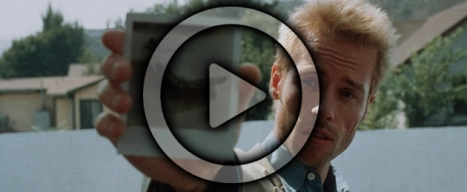Hosted by Andrew Quinn and Darren Mooney, and this week with special guests Phil Bagnall and Kurt North, The 250 is a weekly trip through some of the best (and worst) movies ever made, as voted for by Internet Movie Database Users. New episodes are released Saturdays at 6pm GMT.
This week, Christopher Nolan’s Memento.
Suffering from a unique of amnesia, a man called Leonard lacks the ability to generate new long-term memories. Haunted by the death of his wife, Leonard has committed himself to finding the man responsible for her murder. However, Leonard finds himself in the midst of various competing agendas, unsure what he is doing from minute-to-minute. What is Leonard really doing? Who can Leonard truly trust?
At time of recording, it was ranked 57th on the list of the best movies of all time on the Internet Movie Database.

Filed under: The 250 | Tagged: carrie ann moss, Christopher Nolan, end of history, film, Guy Pearce, history, imdb, joe pantoliano, kurt north, leonard, los angeles, memento, memory, neo-noir, Nevada, phil bagnall, podcast, the matrix, unreality | Leave a comment »




























